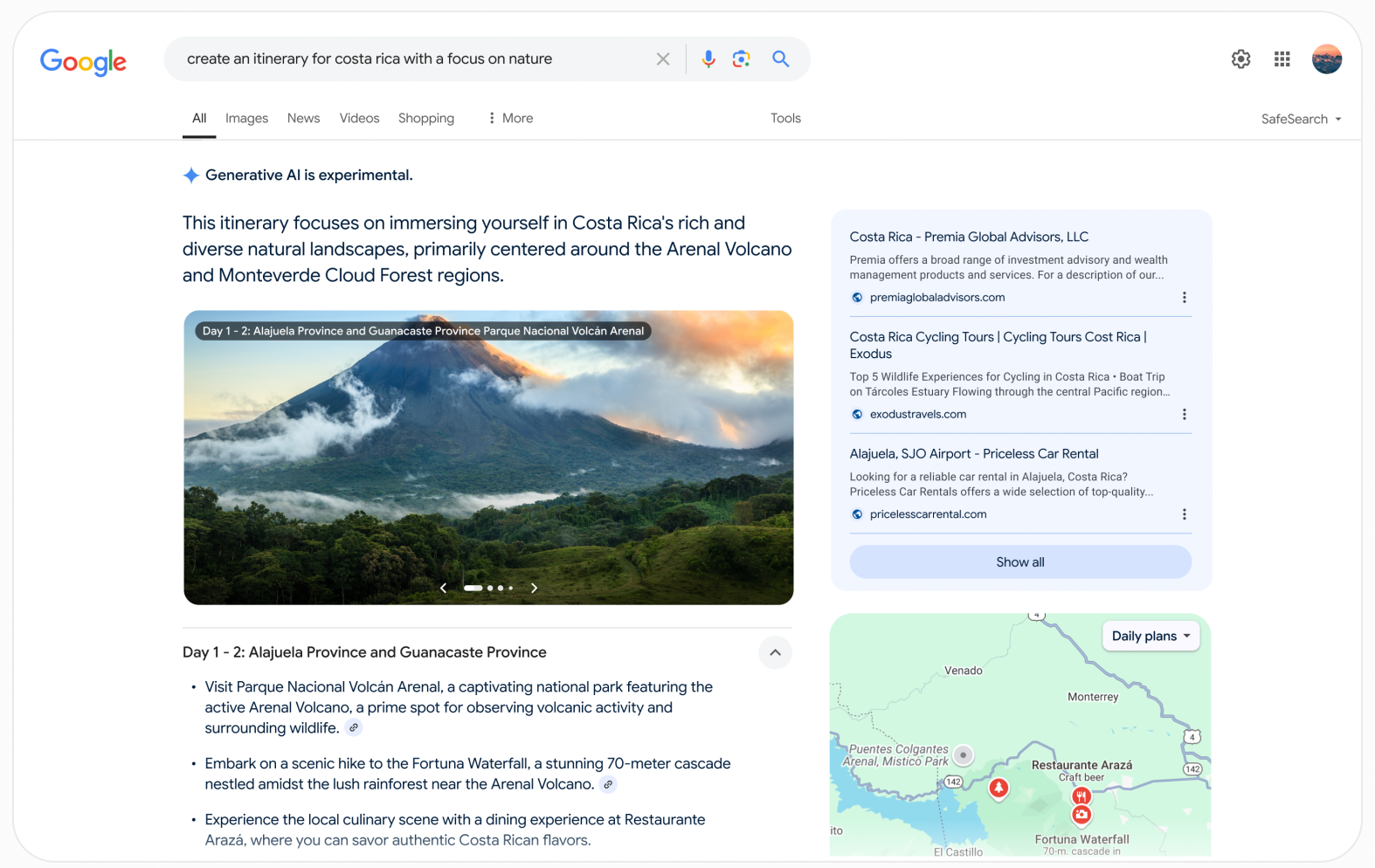Google is adding artificial intelligence (AI) tools to make vacation planning simpler across Maps, Search, and Hotels. The standout new feature lets Google Maps scan screenshots to find and map places mentioned in your saved images.
Most travelers know the frustration of taking screenshots of interesting places while researching trips, only to lose track of them in their camera roll. Google’s new feature directly addresses this common problem by using AI to organize these scattered pieces of travel inspiration.
The new screenshot feature uses Google’s Gemini AI to find place names in the text of your saved images. You can then look at these spots and save them to a map list. It only works with written text, not pictures of places, so it can find restaurants mentioned by name but not those only shown in photos.


Source: Google
This feature is coming first to iPhone users in the US this week, with Android phones getting it later. Google says that all the scanning happens on your phone, and your screenshots never get sent to Google’s servers.
Google also improved its AI Overview for Search to streamline travel plans. You can now type requests like “create a food tour for Japan” or “plan a family trip to NYC with museums” to get ideas that include maps, reviews, and photos.
“From there, you can explore photos and reviews from other users and see locations on a map,” Google’s announcement explained. Users can tap ‘Export’ to share ideas through Docs or Gmail or save them as a list in Google Maps.


Source: Google
For travelers watching their budget, Google added hotel price tracking that works like flight alerts. When looking at google.com/hotels, you can turn on price tracking for your travel dates and place. The system looks at your filters, like star rating or beach access, and emails you when prices drop.
Google Lens provides information about what your camera sees and will soon work in more languages beyond English, adding Hindi, Indonesian, Japanese, Korean, Portuguese, and Spanish.
Google stressed that privacy is important with these features. Ryan Whitwam of Ars Technica noted, “Google confirms to Ars that all Maps image processing happens on device, which is probably why it’s only analyzing text.”
These updates aim to consolidate scattered travel information and leverage AI for personalized recommendations while enabling cost-saving through price alerts ahead of the summer travel season.





















